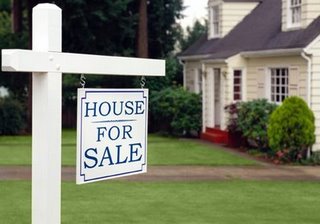
If you’re in the market for your first home, considering a move to another neighborhood or you want to invest in rental property, it’s important to know the ins and outs of homeowners associations before getting too far along in the home buying process.
In a nutshell, a homeowners association (HOA) is a residential community governance organization that creates, implements and regulates rules for properties and residents within the community. If you purchase a home within an HOA community, you cannot opt-out of the membership and must pay HOA fees (typically on a monthly basis).
Some people think negatively of HOAs because they’re often perceived as overly controlling and expensive, but there can be many benefits of living in a homeowners associations governed community as well. If you’ve never lived in a neighborhood with a homeowners association before, here’s what you should know before deciding to purchase a property in that area:
What Do HOAs Do?
Homeowners associations are in charge of maintaining a community’s appearance and harmony amongst all residents. They accomplish this by designing, implementing and enforcing rules, the latter of which typically comes in the form of warning notices sent to rule violators and fines imposed for persistent rule breakers who don’t adhere to previous warnings.
HOAs also maintain common areas by scheduling and paying for cleaning and maintenance services, as well as any necessary repairs and renovations.
Who’s in Charge of HOAs?
HOAs are run by members of the community through a board of directors who are elected by the community to manage and regulate the HOA’s rules for properties and residents within their jurisdiction.
A majority of HOAs outline their rules in a Declaration of Covenants, Conditions, and Restrictions (CCRs); rules may cover anything from building and landscaping requirements/restrictions to neighborly conduct policies.

How Much Do Homeowners Associations Fees Cost?
Costs vary widely for HOAs, but they typically fall within the range of $150 to $400 per month on average. The more amenities you have, the more you’ll pay (some high-end communities pay several thousand dollars per year). If there are few amenities, then you may be paying a small monthly HOA fee simply to cover the costs of resident management.
Why Are HOAs Beneficial for Residents?
HOAs are useful for protecting residents’ safety, maintaining and beautifying the community (which is good for property values), as well as reducing your responsibilities as a resident (e.g., shoveling snow, planning community events).
Living in an HOA community means you likely won’t have to deal with noise or visual nuisances – fining the perpetrators will take care of any issues – and you get access to exclusive community amenities like swimming pools, tennis or basketball courts, barbeques, dog play areas, fitness centers and much more.
What Are the Downsides of HOAs?
One of the biggest drawbacks associated with HOAs is the capacity for the board to institute some ridiculous policies for the community. Some seemingly absurd HOA demands and regulations that have made the news in the past include:
- Restrictions on the number of rose plants in a community member’s front garden (Rancho Santa Fe, CA)
- Prohibiting a resident from putting a “For Sale” sign in her front yard, due to an HOA ban on signs and banners (Lebanon, TN)
- Attempting to evict a woman’s granddaughter after she gained legal custody of the 6 year-old girl (55+ community in Clearwater, FL)
- Requiring residents to carry their dogs to avoid letting paws touch the ground in common areas at any time (Long Beach, CA)
- Cracking down on “vandalism” in the neighborhood when a 3 year-old kid drew on the sidewalk with chalk (Denver, CO)
Other, more common examples of limitations HOAs place on residents include maximum number of pets you can own, no smoking anywhere (not even inside your own home), limits on planting or uprooting trees, restricting certain plant and flora varieties, prohibiting signage of any kind (especially political signs), prohibiting bikes/rollerblades/skateboards/scooters and other sports equipment from common areas, and so on.
It ultimately depends on what’s allowed and what’s restricted by your own HOA (every community has different rules), but the amount of freedom you have in an HOA community is almost always going to be less than what you’d have in your own, non-HOA home.
Should I Buy a Home in an HOA Community?
There’s no right or wrong approach to HOAs. It’s really up to you to weigh the pros and cons of buying a home in a community regulated by an HOA and decide if the monthly costs and restrictions are worth the benefits.
There are few – if any – instances where you can buy a home in an HOA’s jurisdiction without being required to join and pay monthly dues, so consider looking elsewhere for your future home if the HOA fees and rules outlined in the Declaration of Covenants, Conditions and Restrictions are too limiting.

